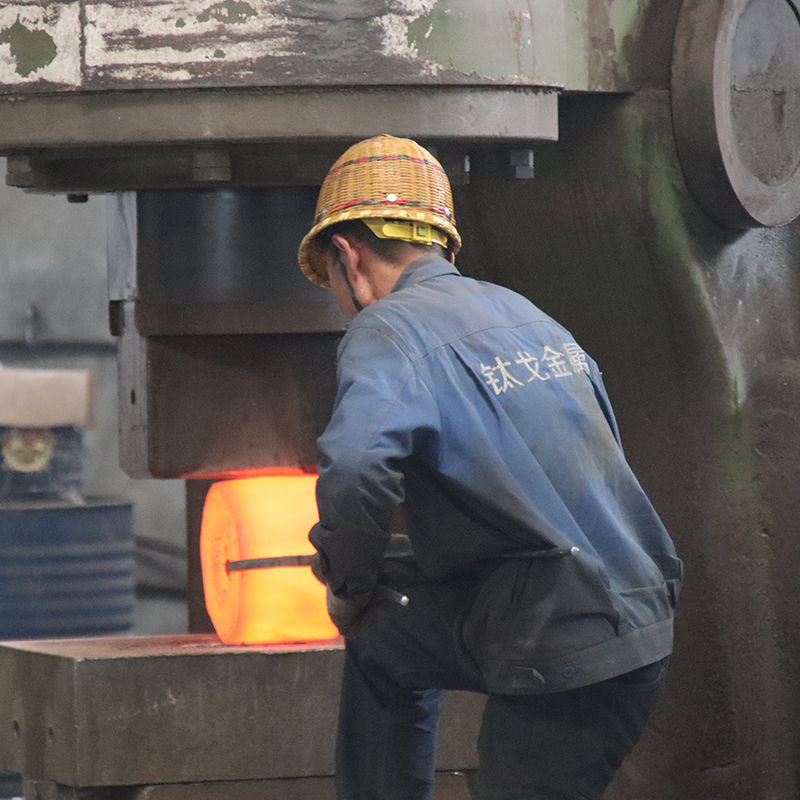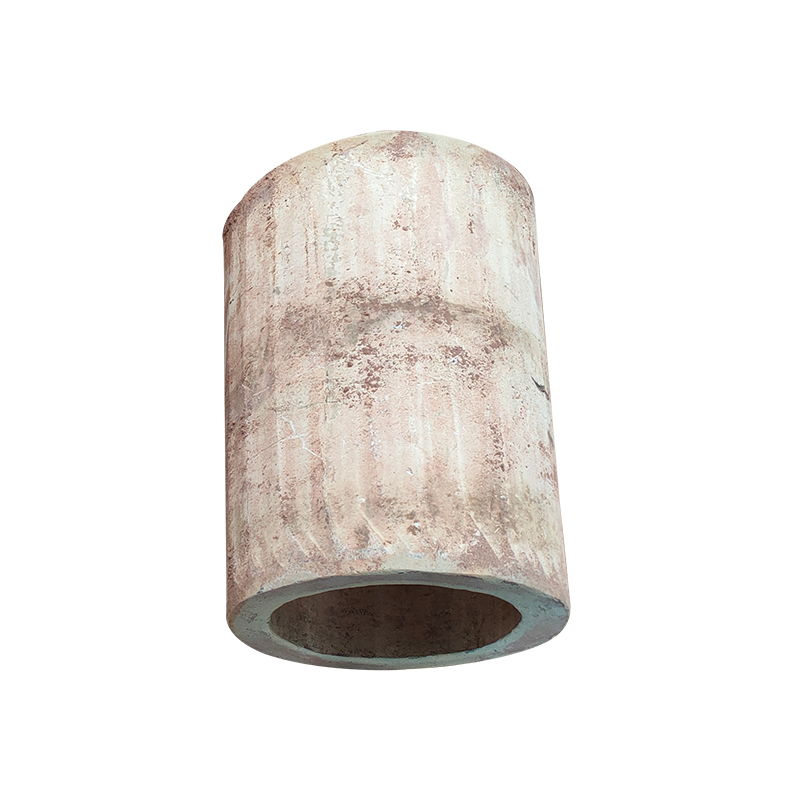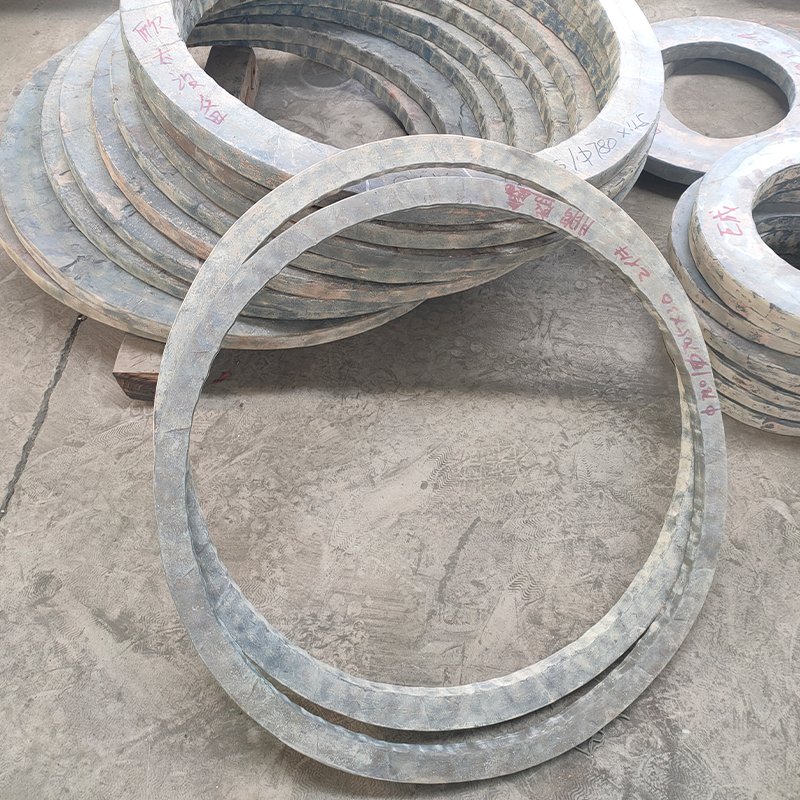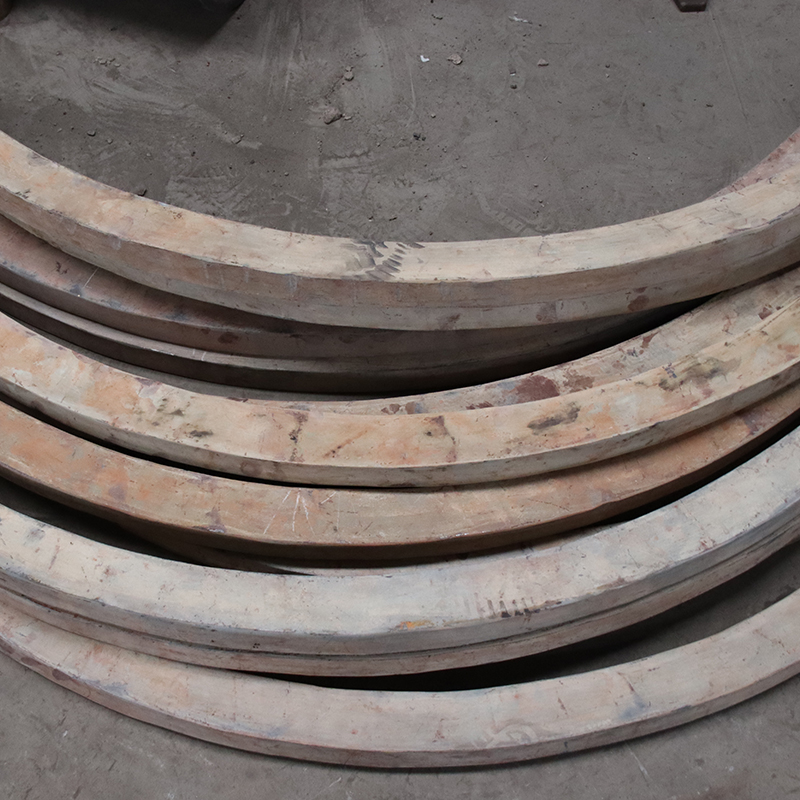
Titanium is an important structural metal developed in the 1950s. Titanium alloys are widely used in various fields because of their high strength, good corrosion resistance and high heat resistance. Many countries around the world have recognised the importance of titanium alloy materials and have successively researched and developed them for practical applications.
Titanium forgings have high strength, low density, good mechanical properties, good toughness and corrosion resistance. In addition, titanium forgings are poor in process performance, not easy to cut, easy to absorb impurities such as hydrogen, oxygen, nitrogen and carbon during hot processing, poor wear resistance and complex production process. Industrial production of titanium began in 1948, with the development of the aviation industry, the titanium industry is growing at an average annual rate of about 8%. At present, the global annual output of titanium forgings has reached more than 40,000 tons, and there are nearly 30 types of titanium forgings. The most widely used titanium forgings are ti-6al-4v (tc4), ti-5al-2.5sn (ta7) and industrial pure titanium (ta1, ta2 and ta3).
Titanium forgings are mainly used in the manufacture of compressor components for aircraft engines, followed by structural parts for rockets, missiles and high-speed aircraft. In the mid-1960s, titanium and its alloys were used in general industry, such as the manufacture of electrodes for the electrolysis industry, condensers for power stations, heaters for oil refining and desalination, and environmental pollution control devices. Titanium and titanium alloys have become a corrosion-resistant structural material. It is also used to produce hydrogen storage materials and shape memory alloys.



Material: Ta2(gr2), ta10(gr12), tc4(gr5), ta9(gr7). Tc11
Execution standard:
Gb/t3620-2007 "chemical composition of titanium and titanium alloy", gb/t16598-2013 "titanium and titanium alloy biscuits and rings", gb/t25137-2010 "titanium and titanium alloy forgings", gb/t38915-2020 "high temperature titanium alloy forgings for aerospace applications", astm b348/b348m-21 "standard specification for titanium and titanium alloy bars and blanks ingot standard specification", astm b381-21 "standard specification for titanium and titanium alloy forgings".
Product characteristics of titanium forgings:
1. High strength. The strength (strength/density) of titanium alloy is much greater than that of other metal structural materials, which can produce parts with high unit strength, good rigidity and light weight. Aircraft engine components, skeletons, skins, fasteners and landing gear, etc. Are used titanium alloy.
2. Good corrosion resistance. Titanium alloy in the humid atmosphere and seawater medium work, its corrosion resistance is far better than stainless steel; pitting, acid corrosion, stress corrosion resistance is particularly strong; alkali, chloride, chlorine organic substances, nitric acid, sulfuric acid, etc. Have excellent corrosion resistance.
3. Good low temperature performance. Good low-temperature performance, interstitial elements very low titanium alloy, such as ta7, in -253 ℃ can also maintain a certain degree of plasticity, so titanium alloy is also an important low-temperature structural materials.
4. Chemical activity is large. The chemical activity of titanium is large, and the atmosphere o2, n2, h2, co, co2, water vapor, ammonia, etc. To produce a strong chemical reaction
5. Small thermal conductivity elasticity. The thermal conductivity of titanium λ=15.24w/(m-k) is about 1/4 of nickel, 1/5 of iron and 1/14 of aluminum, while the thermal conductivity of various titanium alloys is about 50% lower than that of titanium.

Wang Long
wlgone@163.com
Disclaimer: This article is reproduced from other media. The purpose of reprinting is to convey more information. It does not mean that this website agrees with its views and is responsible for its authenticity, and does not bear any legal responsibility. All resources on this site are collected on the Internet. The purpose of sharing is for everyone's learning and reference only. If there is copyright or intellectual property infringement, please leave us a message.
©copyright2009-2020New York Fashion News Contact Us SiteMap